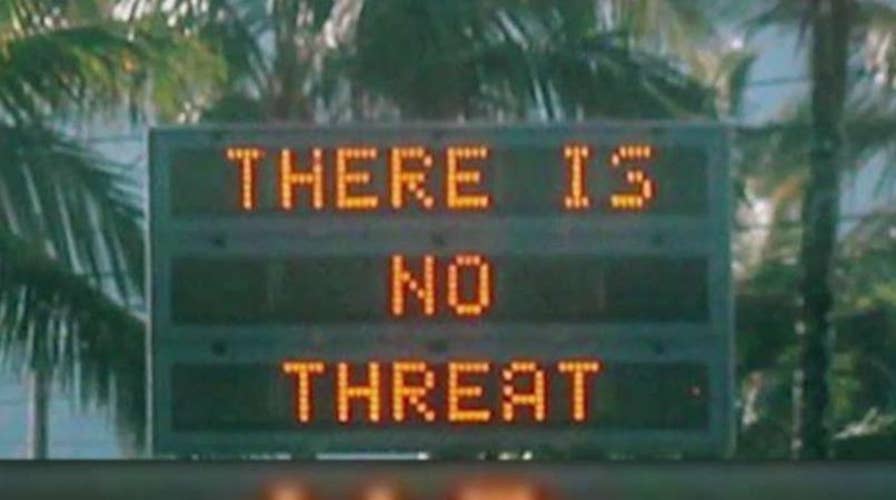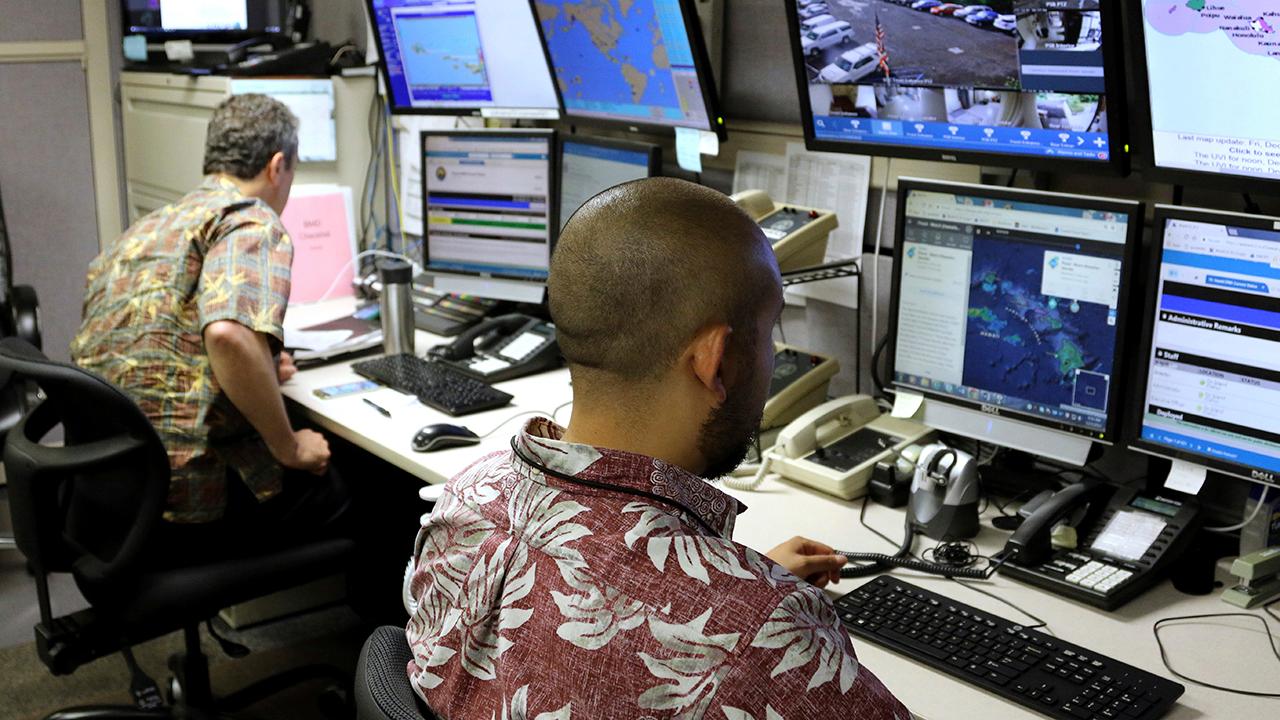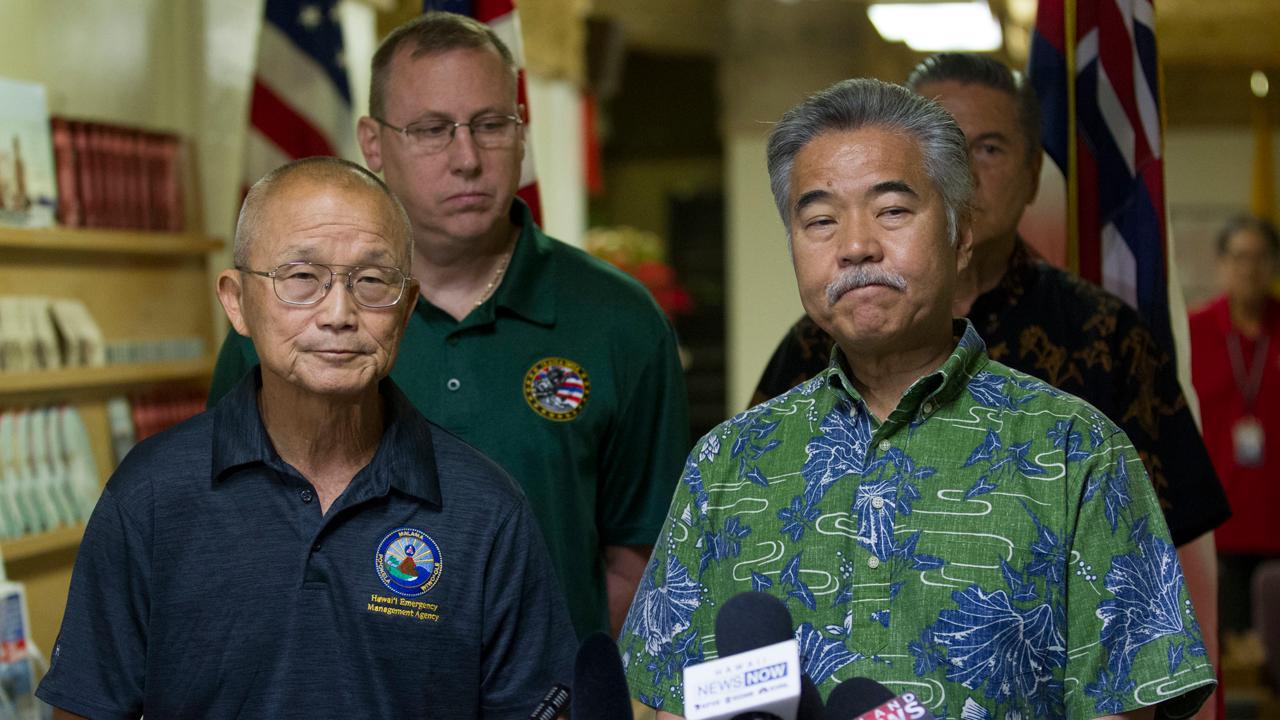Hawaii makes changes to its missile alert test
Fox News correspondent and former Navy fighter pilot Lea Gabrielle discusses the changes made by the Hawaii Emergency Management Agency in the wake of the missile alert test that caused a wave of panic in Hawaii.
Senate lawmakers held a hearing Thursday trying to get to the bottom of what went wrong when a false ballistic missile alert was sent by authorities in Hawaii, fueling widespread public panic.
“What happened in Hawaii is inexcusable,” Sen. John Thune, R-S.D., said. “There are problems that must be addressed.”
State authorities blamed human error for the false alarm on Jan. 13 that took an agonizing 38 minutes to correct.
Hawaiians woke up to alerts on their phones and television sets that read, “BALLISTIC MISSILE THREAT INBOUND TO HAWAII. SEEK IMMEDIATE SHELTER. THIS IS NOT A DRILL.”
In that time, people were seen running down the streets with their families, crying, praying and looking for shelter. Students at the University of Hawaii could be seen bolting across campus to take cover in buildings. Drivers abandoned cars on the highway while others took shelter in a tunnel.
“What happened in Hawaii raises basic policy questions,” Sen. Brian Schatz, D-Hawaii, said at the commerce committe hearing.
Schatz, who was in Honololu when the false warning was issued, argued that something like a missile attack alert should not be the responsibility of local officials.
“A missile attack is federal,” he said. “A missile attack is not a local responsibility.”
Schatz also said he would be introducing legislation soon that shifts the responsibility from the state and local level to a national one.
To prevent a repeat, Hawaii’s Emergency Management Agency has said it will require two employees to activate the alert system. One will issue the warning while another will need to confirm it.
The Federal Communications Commission’s bureau chief overseeing public safety testified at the hearing as well as a senior vice president at a wireless trade group and the chief technology officer at the National Association of Broadcasters.
Last week, FCC Chairman Ajit Pai said an investigation was underway into why it took so long for Hawaii to correct the false alert.
Pai said Hawaii did not have adequate safeguards in place. He said the Jan. 13 incident underscored “’the need for our alerting system to work properly and for alerts to convey accurate information to the public.”
Thursday’s hearing is the first of two on the topic. The second will be a hearing in Hawaii. The date and time of that hearing has yet to be announced.















































